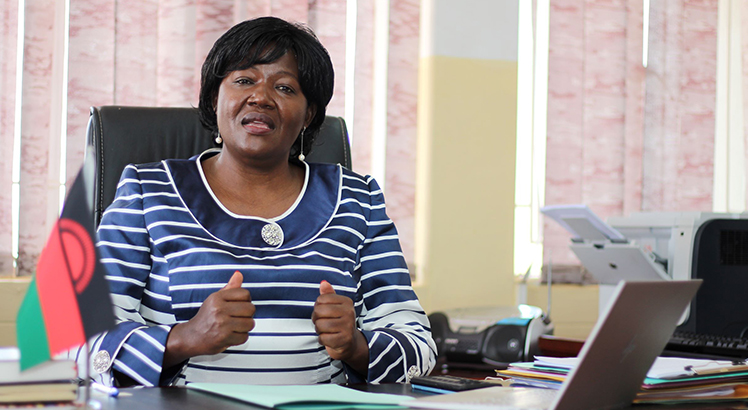For the first time in the history of the Malawi Parliament, opposition members of Parliament recently went into the august House wearing attire made from sacks, arguably to show their empathy with citizens who are struggling in the crucible of poverty.
President Lazarus Chakwera, in the State of the Nation Address (Sona) on that day, admitted that many Malawians are going through tough times.
However, both sides of the poverty story have not spelt out clearly how and when the citizens, as well as the government, will get out of the economic quagmire. Malawi’s domestic and foreign debt, hovering around K6 trillion, has skyrocketed to the extent that the government cannot manage to repay, reports indicate.
“My summation of Malawi’s condition is that we are a nation at a crossroads, a crossroads at which we must take sacrificial action now to transform our economy and reform our governance systems,” Chakwera said, amid jeers from the opposition side.
As a former member of this House, the president said: “I have friends and colleagues on both sides of the political divide, and some of them warned me that my reception in this chamber today may be hostile.”
Indeed, there is a sense of hostility not only in Parliament, but also in the streets and other places. Many people believe that the Tonse-led government has failed to live up to its sweet campaign promises.
Canaan, the land of milk and honey as promised in the run-up to the court- sanctioned fresh presidential election of June 2020, remains abstract in the minds of many citizens.
People, not only in rural areas, but also in cities, cannot afford three meals a day. Others are depending on maize bran and locally grown okra for a meal.
Money has become scarce. Yet, commodity prices are rising every day. There is no light at the end of the tunnel.
“Our macroeconomic indicators signal that our economy is suffering from several vulnerabilities. Even a cursory look at inflation rates is not encouraging. The average annual inflation rate for 2021 was in the single digits at 9.1 percent, and yet this more than doubled to 20.9 percent in 2022, way above the central bank’s target of five percent, with no prospect of reaching that target in 2023,” Chakwera said in Parliament.
Similarly, food inflation rose sharply from 13.6 percent in 2021 to a staggering 31.3 percent as of two months ago, while non-food inflation doubled from 9.3 percent to 18.6 percent in the same period, he added.
Much as the government has developed strategies to reverse the situation, implementation of such strategies will be an uphill struggle.
He said: “While all these measures are designed to slow the bleeding, they are not enough to stop it or heal the primary wound haemorrhaging our economy. “That wound is the fact that we as a people and as a country are simply not producing enough valuable goods and services to generate the forex and revenue necessary to pay off our debt, engage in meaningful development, free ourselves from foreign aid, and make our economy resilient against external shocks, disasters, public health crises and global disruptions.”
Coincidentally, the Bible study book of the Seventh Day Adventist Church for the period January-March 2023 is discussing issues Malawians at all levels can benefit from.
It has lessons that can help people and the government to free themselves from the bondage of debt and poverty, based on biblical teachings.
“Today debt seems to be a way of life, but it should not be the norm for Christians,” reads part of lesson number five.
Greed is one of the reasons many people and governments are trapped in debt. Meanwhile, the government is hoping that foreign creditors will write off the debts to offer Malawians a new lease of life, having qualified for relief as a Heavily Indebted Poor Country (Hipc).
“Debt can be alleviated,” the lesson book reads. “Those in debt need to make some changes in their spending and financial priorities.”
Declare a moratorium on additional debt. No more credit spending. If you don’t borrow money, you can’t get into debt. If you don’t borrow any more money, you can’t get further into debt, it adds.
It is undeniable that fraud, abuse of office and corruption are the vices that have slid Malawi down into the crucible of poverty. Borrowing for consumption instead of production continues to impede development.
Reports indicate that at least 30 percent of Malawi’s revenue is lost though fraud and corruption perpetuated by people in the echelons of power. Donor aid is not exempted.
Planning for success, working with integrity, managing in tough times and rewards of faithfulness are some of the topics the book has touched on.
The book also discusses how in the biblical time, poor people were looked down upon by unscrupulous officials such as tax collectors, those in business, and the need for that to be avoided now by people who claim to be believers.
“Defend the poor and fatherless; do justice to the afflicted and needy. Deliver the poor and needy; free them from the hand of the wicked,” the book quotes Psalm 82.
“What Malawians want is for us to become a nation of people who can produce enough to afford to feed themselves without owing anyone here at home or abroad any thanks for it,” Chakwera told parliament.
Hopefully, members of Parliament who wore rags in the august House will go beyond rhetoric and ensure that the Tonse-led government delivers on its campaign promises, for the people to be saved from the crucible of poverty that has reached unbearable level.
The post How to get out of the current economic woes first appeared on The Nation Online.
 Moni Malawi
Moni Malawi 
